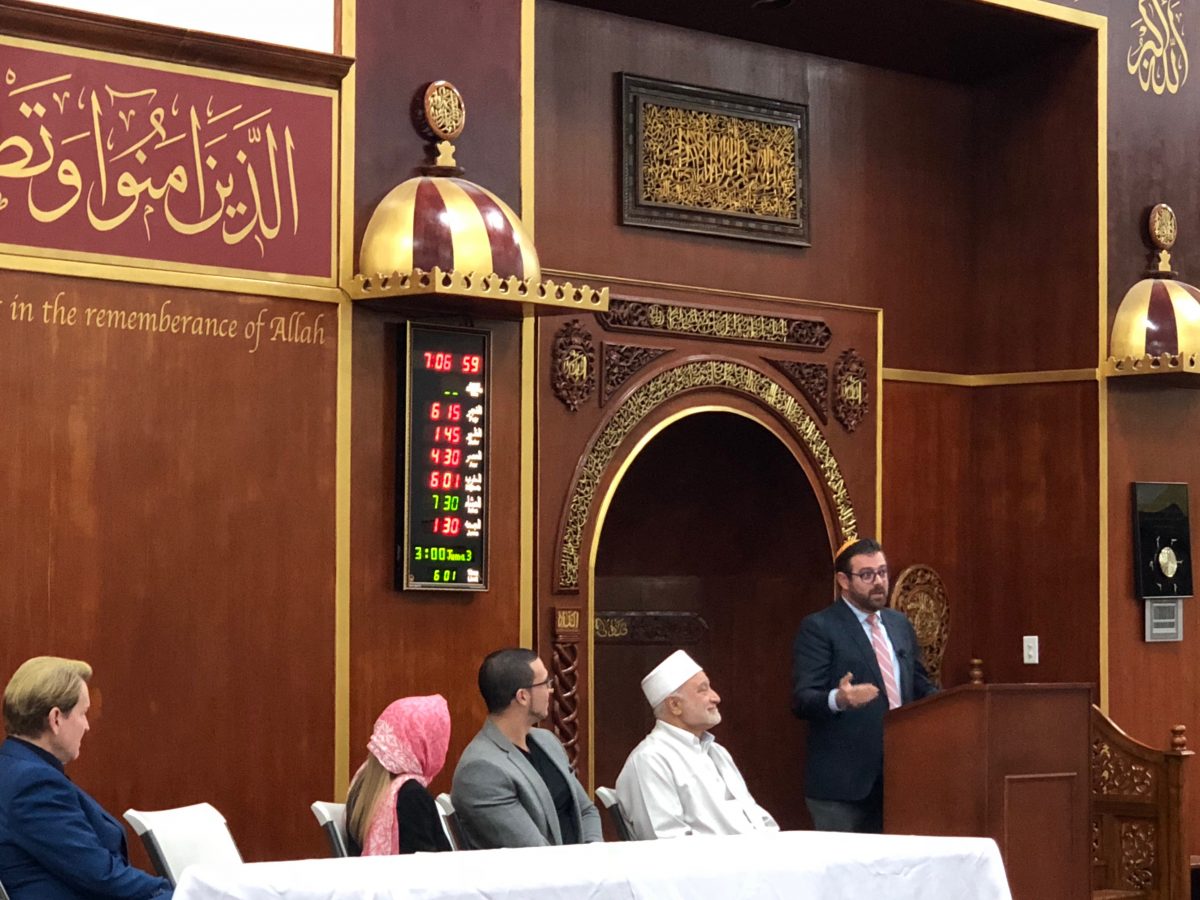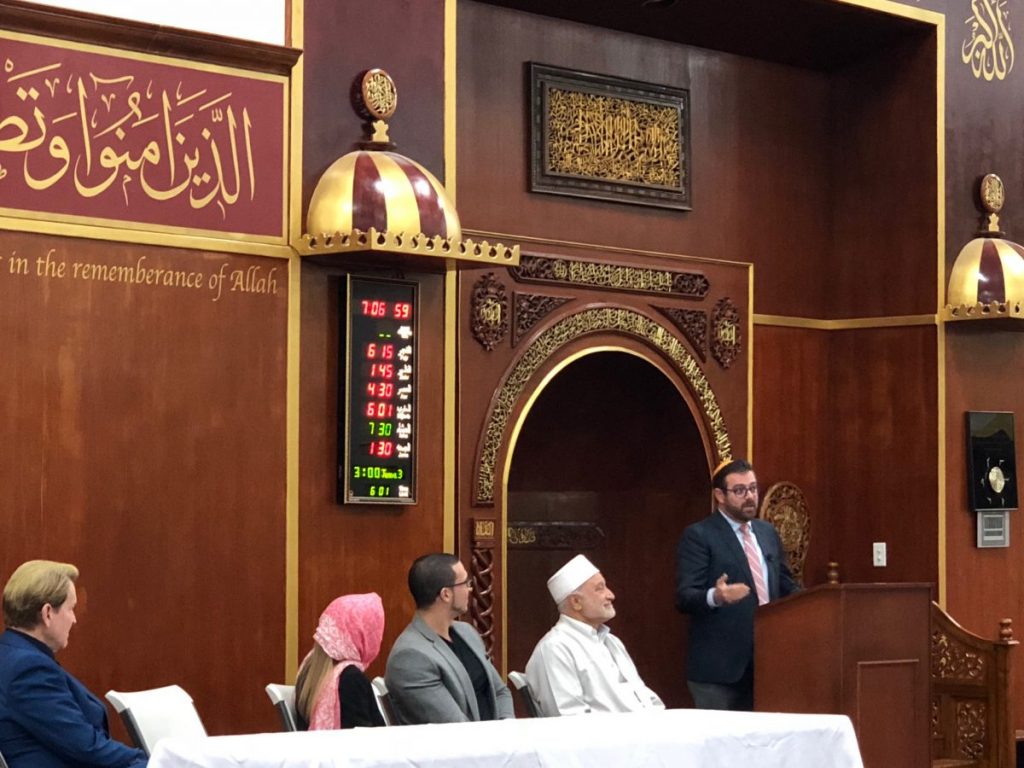

As UM’s Social Justice Week came to a close, students had the opportunity to look past cultural boundaries and learn about Islam, observe an evening of Muslim prayer and share a meal at the Islamic Center of Greater Miami.
Senior Megan Lipsky, the founder and vice president of the Miami Interfaith Council, said the event was a perfect fit for Social Justice Week because it allowed for people from different faith groups to find common ground.
“A lot of religion is teaching people how to be good people … How to treat other people with respect and kindness and that is the core of social justice,” said Lipsky, a double major in political science and philosophy.
Ten UM students, alongside clergy and religious leaders, traveled to Miami Gardens to visit the center on Jan. 25, to get an inside look and understanding into worship rituals practiced in the Muslim faith.
The students heard readings from the Quran, witnessed one of the five daily Muslim prayers and shared a meal which was both Halal and Kosher – food that adhered to dietary laws of both Muslims and Jews. There was a conversation at every table about how individual congregations can collaborate on various projects, including starting Arabic classes at a local synagogue and hosting events to help break down religious stereotypes.
The event was part of a larger initiative led by clergy in South Florida to foster a strong multi-faith community and create opportunities to develop understanding and harmony.
In October 2017, a group of Abrahamic clergy from South Florida participated in a three-day, multi-faith conference in Rabat, Morocco, organized by the American Peace Caravan as a part of the Forum for Peace.
The Caravan brings together triads of Jewish rabbis, Christian pastors and Muslim imams from different cities across the United States for workshops and brainstorming sessions to gain a better understanding of one another and to cross the proverbial lines often drawn in the sand to separate religions.
In the United States, Islam and Judaism are considered minority religions. According to the Pew Research Center, approximately 0.9 percent of the total United States population practices Islam – though it is the fastest growing religion in the world – and 1.9 percent practices Judaism. The country’s largest religious group, Christians, represent 70 percent of the population.
Lyle Rothman, the on-campus rabbi at UM Hillel and chair of the Chaplain’s Association, attended the conference in Rabat. Rothman said events such as the Jan. 25 visit to the Islamic center are the first steps toward a unified community.
“There’s a lot of tension in this world today and the one thing I keep reflecting on is what the psalmist teaches … This is a world, with God’s help, that will be built on love and kindness,” Rothman said. “It is our responsibility … To continue to partner with each other.”
Abdul Hamid Samra, Imam and director of religious services at MCA’s Islamic Center of Greater Miami, was “honored and delighted” to welcome people from different faiths to the mosque.
“I hope and pray to God that he will always unite our hearts and bring us together so we can eliminate any kind of misunderstanding, any type of hate or animosity,” said Samra, who is also an adjunct professor of electrical and computer engineering at UM.
Khadija Haider, a Ph.D. candidate studying marine biology and ecology at UM, said the event gave her a platform to clarify misunderstandings people may have about her Muslim faith. She was able to interact with non-Muslims and answer questions about Islam in an open way, including dispelling damaging stereotypes.
“Terrorism has no religion,” said Haider, a native of Pakistan. “I believe every religion is about peace and humanity.”
Each of the faith leaders in attendance said that this is just the beginning of the multi-faith collaboration in South Florida. The congregations are planning to partner with the city of Miami Gardens on a community project in the near future.
“It is our responsibility to look beyond the yarmulkes … Beyond the hijab … Beyond the cross and look deeper into their souls,” Rothman said.





